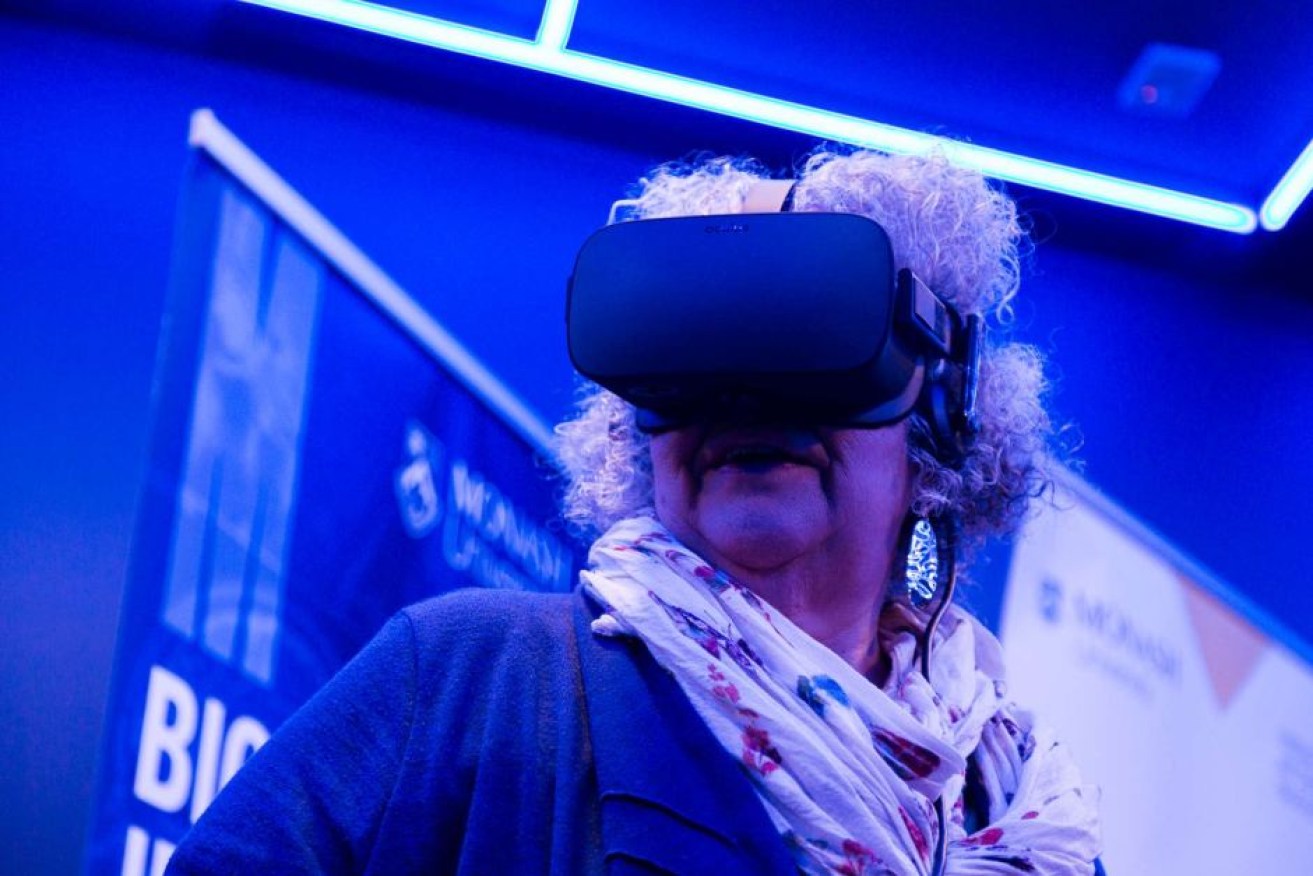New brain research facility uses virtual reality to help people with addictions

Anna Bardsley says she needed to retrain her brain to help overcome her gambling addiction. Photo: ABC News
Anna Bardsley, a retired grandmother of two, lost 10 years of her life to the pokies.
The former businesswoman not only gambled away her life savings, but also lost her marriage to the machines.
“I’d say I’d only spend $20 and $200 later I would feel so disgusted with myself, but I had zero control over my impulses,” she said.
“I lost not only money, but time and every shred of my self-esteem.
“There were times I thought I may as well be dead, but I couldn’t do that to my family.
“I realised my brain was doing what it thought I wanted it to do, so I needed to retrain it.”
The Monash Institute in Melbourne has created a world-first, purpose-built brain research facility to help people with addictions like Ms Bardsley.

This virtual reality pokies venue puts the doctor and patient in a realistic scenario for treatment. Photo: ABC News
BrainPark uses neuroscience paired with virtual reality and high-intensity exercise to diagnose and treat people who suffer from compulsive disorders, without resorting to medication.
“Therapeutic virtual reality is a game-changer for mental illness,” Dr Rebecca Segrave, the director of BrainPark, said.
“It can put a clinician, a client and their habits together in a realistic addiction hot zone, where they can work to retrain new responses to cannabis, alcohol, gambling or amphetamines.
“There’s a whole library of problematic triggering situations that are really difficult to access in the real world, which can be available in a clinician’s office through the flick of a switch.”
Addicts can be tested in virtual environment
Through virtual reality, people who suffer from contamination-related OCD can challenge themselves to face their triggers, by making kitchens and bathrooms more dirty.
Gambling addicts can be tested in a safe space by going into a replica poker machine venue.
“We can measure people’s physiological brain response to different aspects of gambling in a virtual environment and look at which aspects of gambling are most involved in their addictive behaviours,” Dr Segrave said.

Anna Bardsley lost “every shred” of her self esteem playing the pokies. Photo: ABC News
The Monash Institute revealed that one in five Australians suffer from unhealthy addictions, but the vast majority do not get help.
“Traditionally people have their addictions treated according to their addiction, counselling for gambling and medication for cravings or anxiety. But this doesn’t work for everyone,” Professor Murat Yucel said.
“We often judge people who chase rewards in our society, but what we’re really trying to do is inspire them by giving them a purpose-built playground for the brain.
“We want to provide a fresh approach to detecting and overcoming compulsions by harnessing the benefits of technology.”
The $3 million facility is jointly funded by the David Winston Turner Endowment Fund and Monash University.
Ms Bardsley, who calls herself a retired gambling addict, said she would benefit greatly from treatments that use technology such as virtual reality.
“It’s in a measured space and it’s in a safer space than physically going to a venue,” she said.
“I think it’s engaging and it makes me want to give the treatment a go.”
BrainPark is currently running research studies but the directors expect to open a clinic to treat patients within two years.
–ABC








